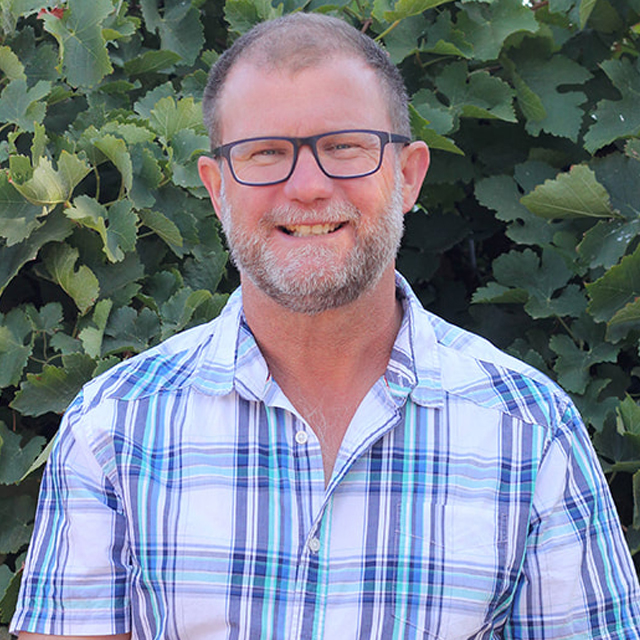1. Tell us about your experience in grape growing?
I purchased my first vineyard in 1997 and have steadily increased the land holding to 35Ha. During this time I had full time off-farm employment and as a family succession plan was enacted, I returned full-time to the vineyards in 2018.
2. What prompted you to want to be involved in the EcoVineyards project?
The ability to gain outside expertise (and funding incentive) to help bolster my knowledge towards a successful project. Gaining access to people that have the required experience and being able to compare against other growers in the Riverland and other districts will be invaluable.
3. What do you hope to achieve from your involvement in the EcoVineyards project?
I hope to see if I can establish cover crops in the midrow, under vine and on the edges of the headlands to reduce soil erosion from spring winds, increasing soil organic matter for better water and nutrient retention and lowering of vineyard temperatures during heatwaves.
4. Have you tried to increase biodiversity on your property before undertaking this project? If so, how?
Before the Millennial Drought, we like most Riverland growers, planted an annual cover crop during winter. Our cover crop consisted of Paraggio and Shaftal medics mixed with Tetila ryegrass. The lack of winter rainfall, high irrigation water prices and conversion to drip irrigation promptly ended that practice.
5. Why do you think it is so important for growers to try and build natural resilience on their property?
Natural systems need a balance to work effectively. Agricultural systems are no different and I have witnessed on the past where ‘high input systems’ can become unstuck by not having a balanced approach. The returns are great until a problem arises that then has a negative impact on the bottom line. The triple bottom line approach to business i.e. People, Planet, Profit is becoming increasingly important, even if it is in small increments.
6. Looking to the future, what do you see as a new ‘normal’ for grape growers on their properties?
Our vineyards will need to be more adaptable to a changing climate. In the Riverland that will involve vineyards with drought and salt tolerant rootstocks in situations where economic drivers are overruled by resource scarcity. Our dry climate can also be an enabler for reducing vineyard inputs i.e. less copper applied for Downy Mildew prevention.

